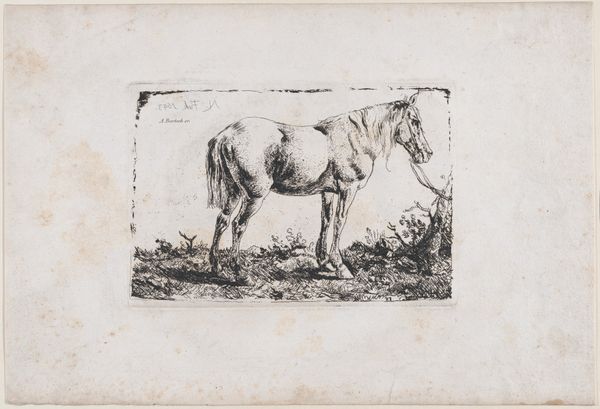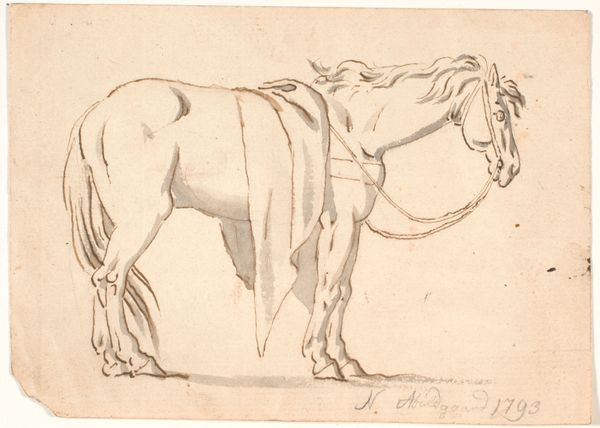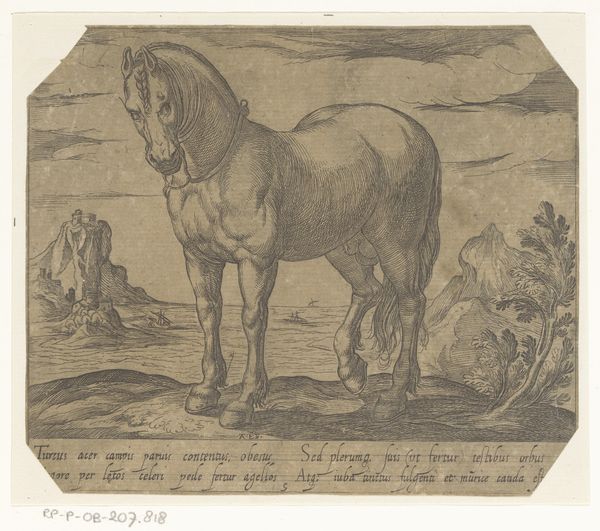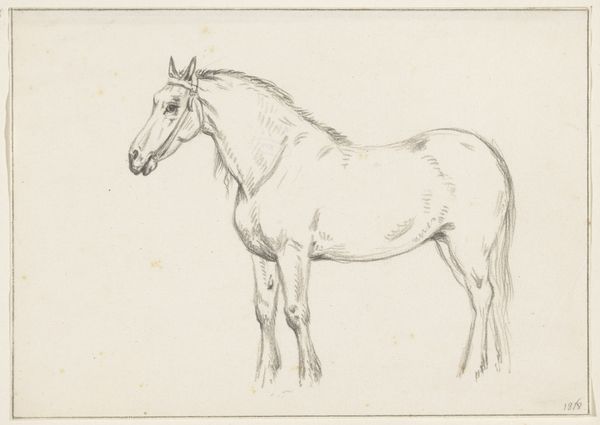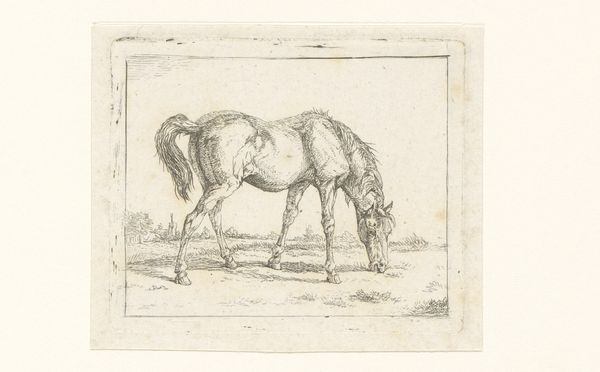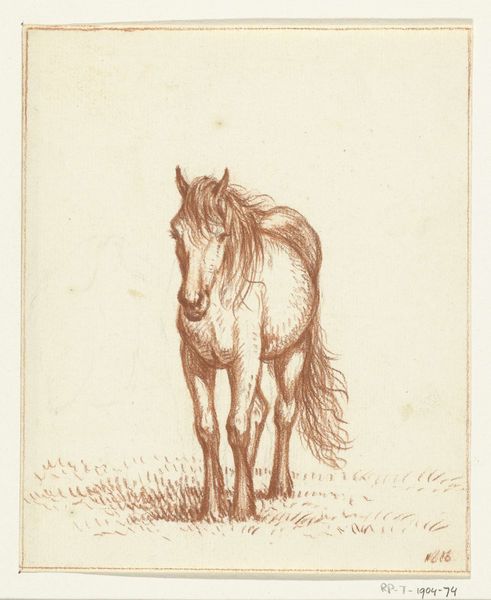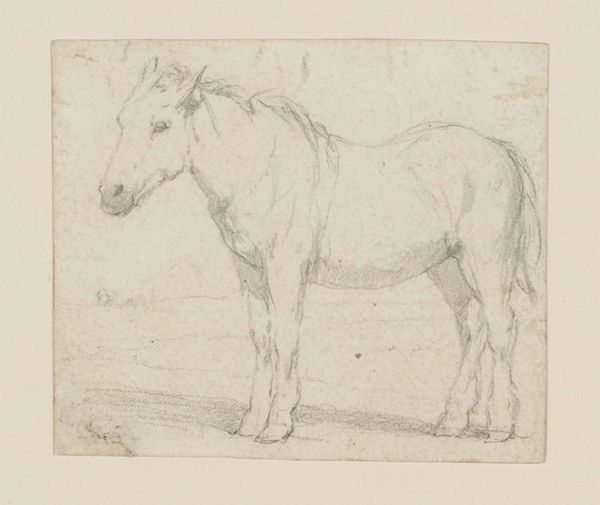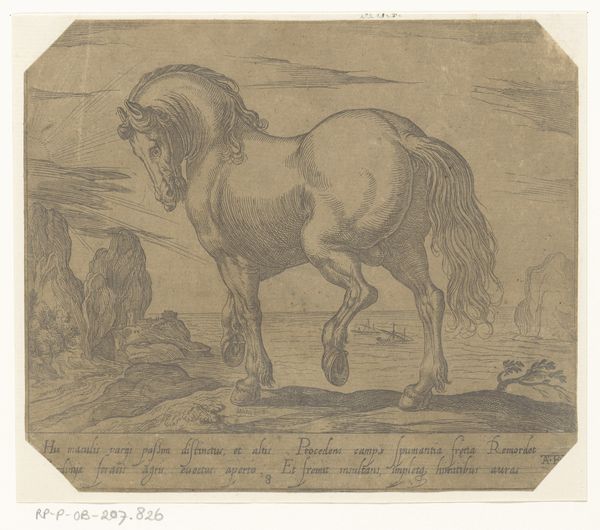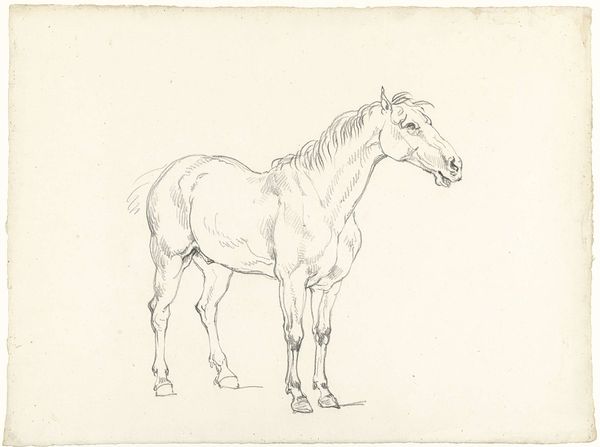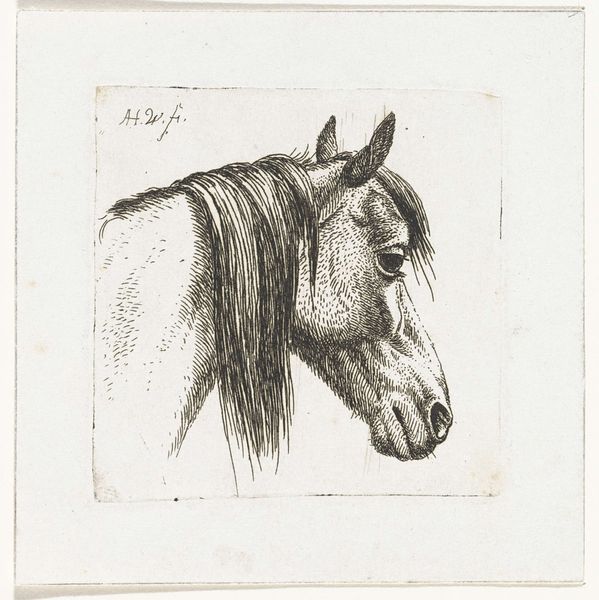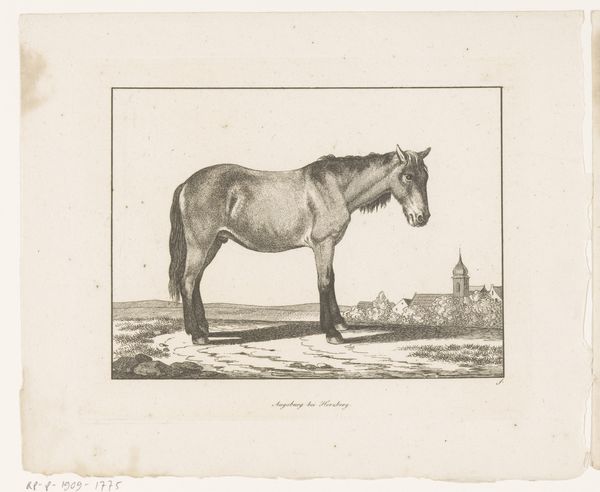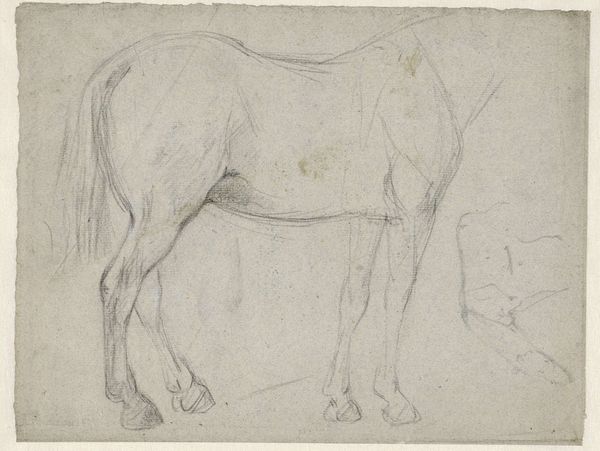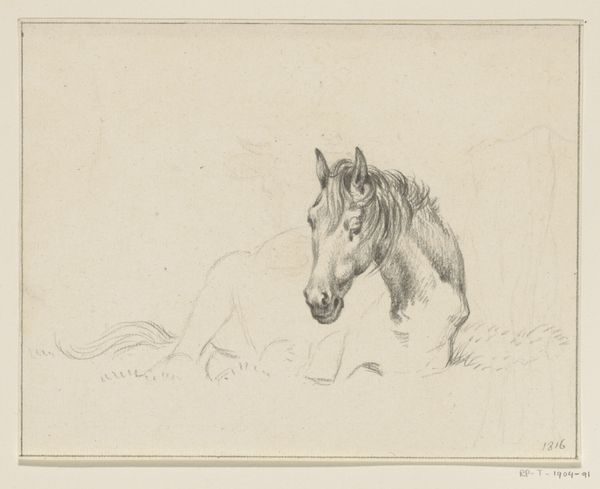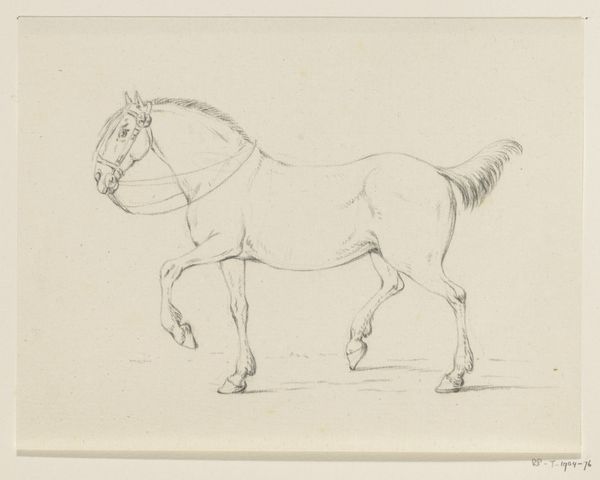
drawing, graphite
#
portrait
#
drawing
#
animal
#
landscape
#
graphite
#
realism
Copyright: Public domain
Jan Mankes made this etching of a horse, sometime before his death in 1920. In the Netherlands, the image of the horse has deep cultural roots. Horses were essential for agriculture and transport, playing a crucial role in the nation's economy and the daily lives of its people. The horse was a symbol of power and social status for its owners. By the turn of the century, it was also a nostalgic symbol of an older way of life in an increasingly industrialised nation. Mankes lived in the countryside and was known for his quiet, intimate depictions of rural life. He often painted animals and landscapes with a remarkable sense of stillness and simplicity. It is interesting to consider how such a traditional subject is made modern, through its very understatement. To understand Mankes' work better, one might explore Dutch rural history, art criticism of the period, and the archives of art institutions that supported artists like him. This gives a more holistic view of the work.
Comments
No comments
Be the first to comment and join the conversation on the ultimate creative platform.
